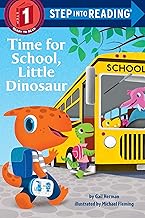SootheEase Massage Cushion SootheEase Massage Cushion
FlexCharge Charging Dock FlexCharge Charging Dock CleanAir Air Purifier CleanAir Air Purifier
Shop NowZenBrew Tea Infuser ZenBrew Tea Infuser HomeGuard Security System HomeGuard Security System
Psychologists play a fundamental role in healthcare when it comes to improving people's physical, mental and social well-being. Today, they are an essential component in resolving different psychological disorders.
This Professional Master’s Degree provides extensive knowledge in advanced models and techniques to evaluate, diagnose and treat people from infancy to old age, including family groups and couples. For this, you will have a teaching faculty that stands out for its extensive professional experience in the different areas in which psychology has developed and in different sectors of the population.
You will consider how people relate, how they think and behave, their experiences of the world and how they function in their everyday life. This will include exploring people’s social, economic, cultural, spiritual and physical health experiences. Counselling psychologists use psychological and psychotherapeutic theory and research. They work to reduce psychological distress and to promote the well-being of individuals, groups and families.
The relationship between you and your client is considered to be central to understanding particular psychological difficulties and how they apply to them. To help recognise the relationship between personal development and professional practice, you will be required to have personal therapy as a client as part of your training and continued professional development.
As far as naturalists are concerned, the great value of wildflowers is in perpetuating the species, in contributing their very presence to the environment in which they play an integral part, though their particular function may not be well understood, even by botanists. Where certain habitats have been disturbed by the construction of dams or human habitations or by the cultivation of land farms and forestry, some flowers have declined in numbers. Occasionally becoming endangered species or even extinct altogether. It is important, therefore, for amateur naturalists to leave such plants where they are, rather than to pick them or attempt to transplant them to their own gardens. Some wildflowers make lovely garden plants and are easy to grow-daisies, violets and buttercups are especially popular and are not all endangered in the wild – and a pretty wildflower garden can turn any backyard into a showplace. But it is always best to purchase the seeds from a commercial nursery or seed Catalog Company rather than try to collect flowers from nature. It is not always easy to reproduce growing conditions in which the plant will feel at home, and it would be a shame to risk the loss of a wildflower in this experimental way.
Popular pastimes for flower lovers in the days before wildflower were considered a natural treasure was to collect and press them. Some enthusiasts would fill entire albums or create handsome dried collages or arrangements, and even today such objects are admired for their beauty. But again, because of the rarity of some flowers and the simple fact that living flowers are always more beautiful than dead ones, collecting them is not recommended. The best ways to bring wildflowers home are through your own photographs or by sketching or painting them on the spot and then displaying your artwork
Featured Products

ToneTight Resistance Bands Set ToneTight Resistance Bands Set
SnugSleep Weighted Blanket SnugSleep Weighted Blanket SkyLine Luggage Set SkyLine Luggage Set HomeGuard Security System HomeGuard Security System
View Product
SleepDream Memory Foam Pillow SleepDream Memory Foam Pillow
MindEase Meditation Cushion MindEase Meditation Cushion ZenMist Aromatherapy Diffuser ZenMist Aromatherapy Diffuser
View Product
EcoWise Reusable Food Wrap EcoWise Reusable Food Wrap
HomeTune Audio System HomeTune Audio System ZenMist Aromatherapy Diffuser ZenMist Aromatherapy DiffuserSootheEase Massage Cushion SootheEase Massage Cushion
View Product